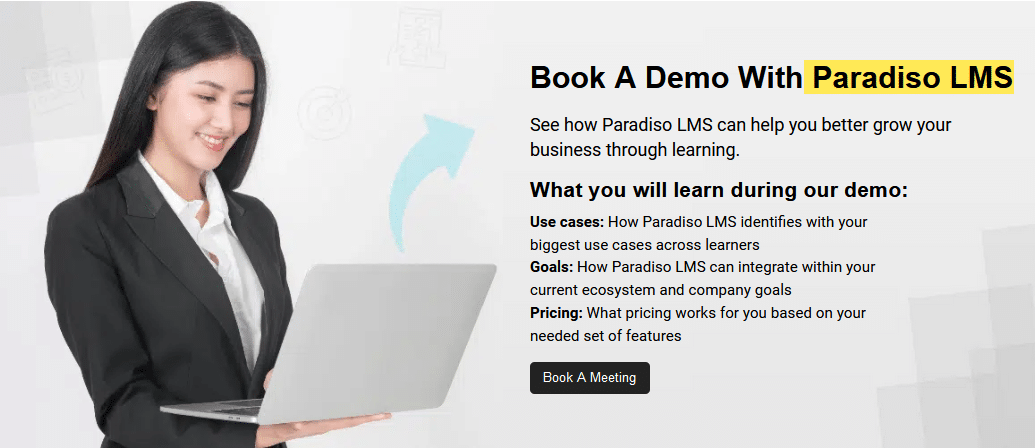Salesforce Channel Training offers a seamless and integrated solution for educating and empowering your sales channels. By leveraging the robust capabilities of Salesforce, an LMS provides a comprehensive platform to deliver consistent and up-to-date training materials to partners, distributors, and resellers.
Salesforce Channel Training inside Salesforce using an LMS

It ensures that all channel partners are aligned with your brand’s messaging, product knowledge, and sales strategies, thereby enhancing their ability to effectively sell and support your products. The integration with Salesforce CRM allows for real-time tracking of training progress and performance, enabling you to identify skill gaps and provide targeted support where needed.
Salesforce LMS fosters collaboration and communication among channel partners through social learning tools and community features. By investing in Salesforce LMS for your channel training, you streamline the training process and build a more competent, cohesive, and motivated sales network that is better equipped to drive growth and achieve business objectives.
Paradiso Solutions can enhance partner training through Salesforce channel training by developing certification programs and on-demand content with its feature-rich Salesforce Learning Management System. Metrics are now available to measure partner involvement and success, and gaps may be filled in real time.
Salesforce channel training will thus be beneficial for:
Salesforce channel training will be beneficial for streamlining partner onboarding, enhancing sales proficiency, and driving revenue growth. With Paradiso LMS, organizations can deliver consistent, scalable, and engaging training programs tailored to their Salesforce ecosystem, ensuring partners are well-equipped to succeed.
- Cutting down on the sales cycle.
- Growing deal sizes and closure ratios.
- establishing a more informed and efficient channel.
Advantages:
- Salesforce’s LMS enables a comprehensive e-learning solution.
- All online classroom functions, including payment processing, communication, and collaboration, are managed by a single sign-on platform (SSO).
- Completely functional LMS with connections to over 100 high-end software platforms.
- Thousands of courses in an online course library.
- Use Salesforce.com to get course and certification results immediately.
- For convenience, training data is kept in Salesforce.com objects.
Features:
- e-learning packages that can be customized or manufactured to order within the Salesforce LMS to meet your needs.
- Without the other partners even realizing they are in the same LMS, the multi-tenancy capability enables you to expand your business to your channel partners.
- On-the-go learners can benefit from mobile learning anytime, anywhere, and on any device.
- Sequential learning helps to boost learners’ motivation and engagement with ongoing coaching centered on their goals.
Embedded learning facilitates the availability of training within the Salesforce LMS.
The Just-in-time training function of the Salesforce LMS is another noteworthy aspect. It is activated when the learner takes or completes a predetermined benchmark. Salesforce channel training offers a wide range of functionalities designed to enhance the learning experience and streamline training management.
- Full Tracking and Reporting Capabilities: This feature allows administrators to monitor learners’ progress, completion rates, and performance metrics in real-time, enabling data-driven decisions and personalized learning paths.
- Calendar Events: Integrated calendar events help schedule and manage training sessions, webinars, and important deadlines, ensuring that learners stay organized and on track.
- Discussion Forums: Forums provide a platform for learners to engage in discussions, ask questions, and share insights, fostering a collaborative learning environment.
- Chat Rooms: Real-time chat functionality enables instant communication between learners and instructors, facilitating quick resolution of queries and enhancing interactive learning.
- RSS Feeds: RSS feeds keep learners updated with the latest news, articles, and updates relevant to their training and professional development.
- Blogs: Integrated blogs allow instructors and learners to share knowledge, experiences, and industry insights, promoting continuous learning and engagement.
- Wikis: Wikis provide a collaborative space for learners to create, edit, and share documents and resources, encouraging collective knowledge building.
- Groups: Creating groups within the LMS helps in organizing learners into specific cohorts or teams, making it easier to manage and tailor training activities to their needs.
- Quizzes/Surveys: Quizzes and surveys are essential tools for assessing learners’ understanding, gathering feedback, and measuring the effectiveness of training programs.












